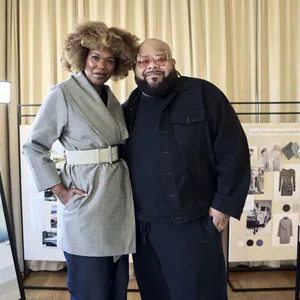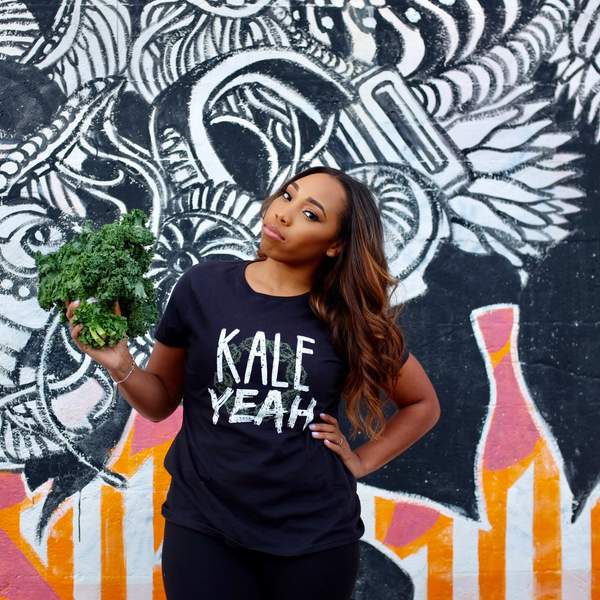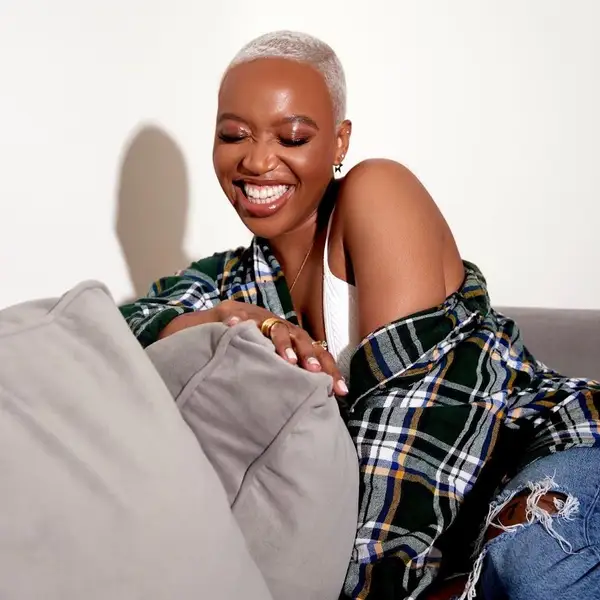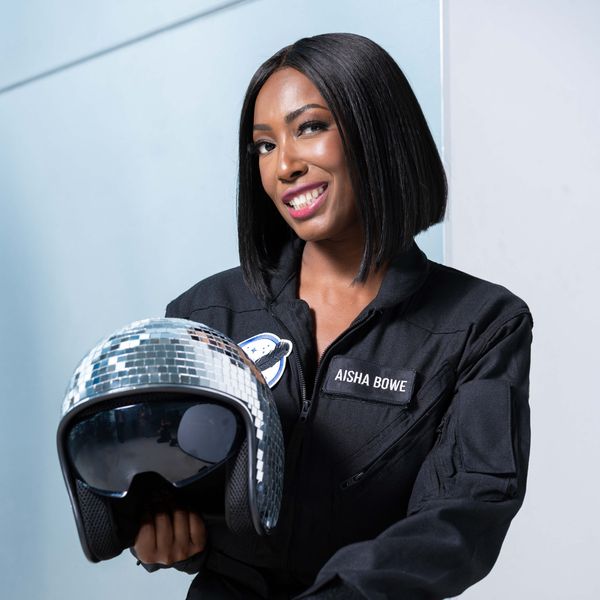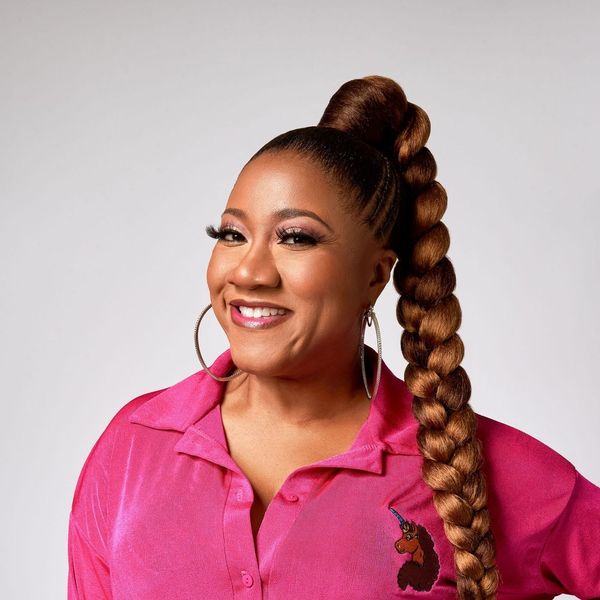Deanna Robinson, a health and wellness advocate and professional based in the Washington D.C. area has been helping Black and brown women reach their fitness goals for more than a decade. And with her brand of self-love and faith, she's redefining just what "fitness" means when it comes to women of all shapes and sizes.
There's definitely a need for women like Robinson, especially since recent research shows that between 47% and 55% of Black consumers' needs "are not being met" in the wellness space, and the U.S. fitness industry hit $32 billion last year and that it's important for Black women to see themselves prominently in the space.
As a health and wellness programming expert, licensed nutritionist, mom, wife, and former all-women's gym owner, Robinson has built up a body of experience that has culminated into doing something she loves via the FabBody Retreat, an experience for women ages 30-60 to be enriched via group activities, good food, and connection in the backdrop of tropical peace and tranquility.
This year's retreat was held in Grenada, with special guest and TV host icon Free Marie (BET's 106 & Park). Next year's event will be held in St. Maarten with plenty of opportunities to enjoy beach vibes, authentic and healthy dishes, and all the pleasures of being among other fabulous Black women seeking holistic wellness in paradise.
"My God-given purpose is to help serve, connect, and heal Black and Brown women," she said, taking her experiences serving corporate and individual clients via projects like the NFL's "Fuel Up To Play 60" initiative and the Nike Training Club live experience, to do just that.
xoNecole caught up with her to talk about why she chose the fitness industry, her success in launching and running the FabBody Factory, and how she's pivoted to use her skills to build impact on a larger scale in health and wellness.
xoNecole: What sparked your interest in a career in health and wellness?
Deanna Robinson: I have always been involved in sports, always been active in cheerleading, dance, [and] gymnastics. In my college career, I was a competitive cheerleader at the University of Maryland, College Park, and I've just always been passionate about physical activity, health, and fitness. I double-majored in kinesiology and public and community health, and it's always been a passion for me about others being well.
Out of college, I wanted to be a personal trainer, and I interviewed at a big-chain gym. I was really excited about getting this job, but when I had the interview, they informed me of what the split was—what the client paid, what I'd get as a personal trainer, and what the gym got. And I just thought it was a ridiculous split. I've always been into entrepreneurship as well, and doing things on my own terms, so I actually opened up my own gym in the community I grew up in called the FabBody Factory, an all-female gym in Upper Marlboro, Maryland.
I was able to hire several trainers, offer group classes and personal training, and one of the things I was always a big proponent of is making sure that they got a better cut than they would get at larger chains.
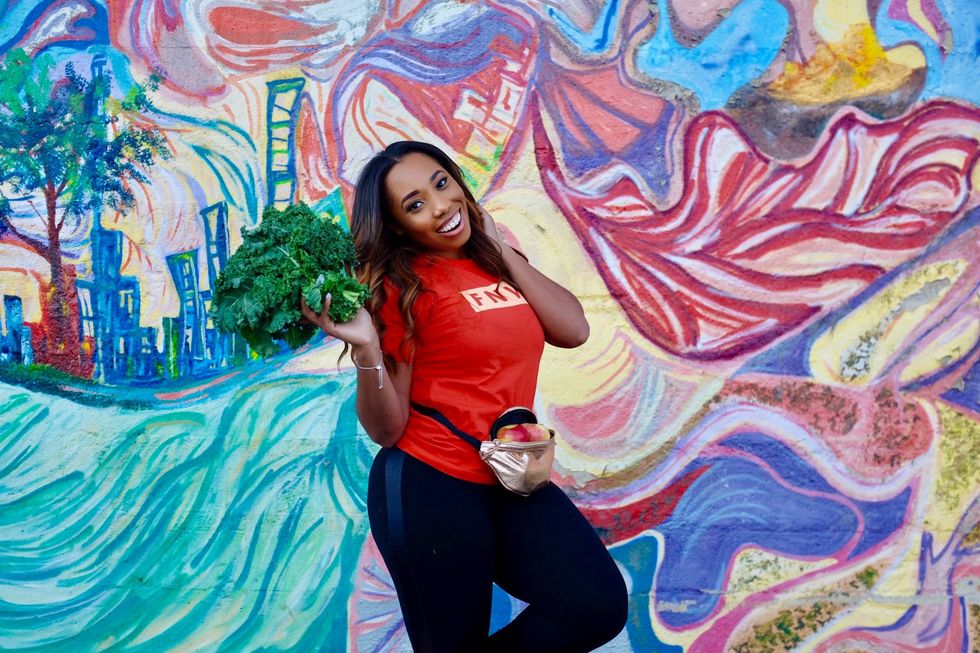
Courtesy
xoN: Talk a bit more about that in terms of starting a gym, especially one that caters to women. What was the process and motivation?
DR: I have worked out in big-box gyms before and just never felt comfortable. It was always really uncomfortable working out in a huge gym where men would be gawking at you or try to get your number when you're trying to focus on yourself in that moment. So I always wanted the FabBody Factory would be a safe haven where we didn't have to worry about our titties flopping when we're doing jumping jacks, it was just for us by us, and we could just [be] comfortable making ourselves a priority.
I was almost talked out of doing something like that because people would say, "You're cutting off half of your potential clientele," but I never had an issue. Women flocked to the gym, and I'd sometimes have to split classes. I might have to do part one of a class at one time and a second another time. It was majorly successful. Ladies loved it. And on top of this being all-women, it was all Black and brown women.
Culturally, we get each other, so it was a big social thing for us, too. We were able to fellowship with each other and get fit at the same time.
xoN: Your brand includes the concept of a 'Fab Body.' What does that mean for you—and just wellness—in general, for Black and brown women?
DR: FabBody in itself is not a look at all. It's more of a mindset and a willingness to invest in your mental, spiritual, and physical self. In promoting the FabBody Retreat, I actually had someone DM me and ask me, "Do you have to have a 'Fab Body' to come on the retreat?" and my response to her was that you do have a 'Fab Body.' Everyone has a Fab Body. It's more of a state of being—a sound, healthy mind, body, and spirit. It's not about aesthetics at all but about overall improvement.
xoN: You decided to pivot from owning a gym, which you ran successfully for more than a decade, to your current role in health and wellness programming and launching the FabBody Retreat. How did this come about?
DR: My gym closed last year, and the reason was because of where I saw myself going and where I wanted to be in the next 10 years. A lot of my time at the gym was selling and getting people to register for classes, and it wasn't as lucrative and fulfilling for me as it had been in the beginning.
Now I'm doing more consulting work with larger companies. One of my passions is programming, and that is where I see my future going. I'm moving more toward passive income, coming from my being able to use the knowledge I have from years in this industry and putting together programming that can reach the masses versus individuals.
xoN: What can people expect from the FabBody Retreat next year, and how does this venture continue your love for advocating for health and wellness among Black and brown women?
DR: One of the things that really sets this event apart from so many other retreats is that I have married everything that is important to me: wellness, my faith, and my community. God is a huge part of all of the events we do, and all are interwoven with faith-filled, intentional activities, and I think that's what makes it different. On Sunday, we do a service on the beach, and we always have a guest speaker—someone you can relate to where you don't feel like you're being preached to. It's an awesome experience, unlike any retreat I've seen.
It's definitely rooted in faith, but at the same time, there's a balance. We'll get on a boat and have a cocktail with an umbrella in it, and then we'll go back to wellness. There's a healthy balance.
Find out more about Deanna Robinson via Instagram @deannarobinsonfit and more on the FabBody Retreat via the website.
Featured image courtesy


